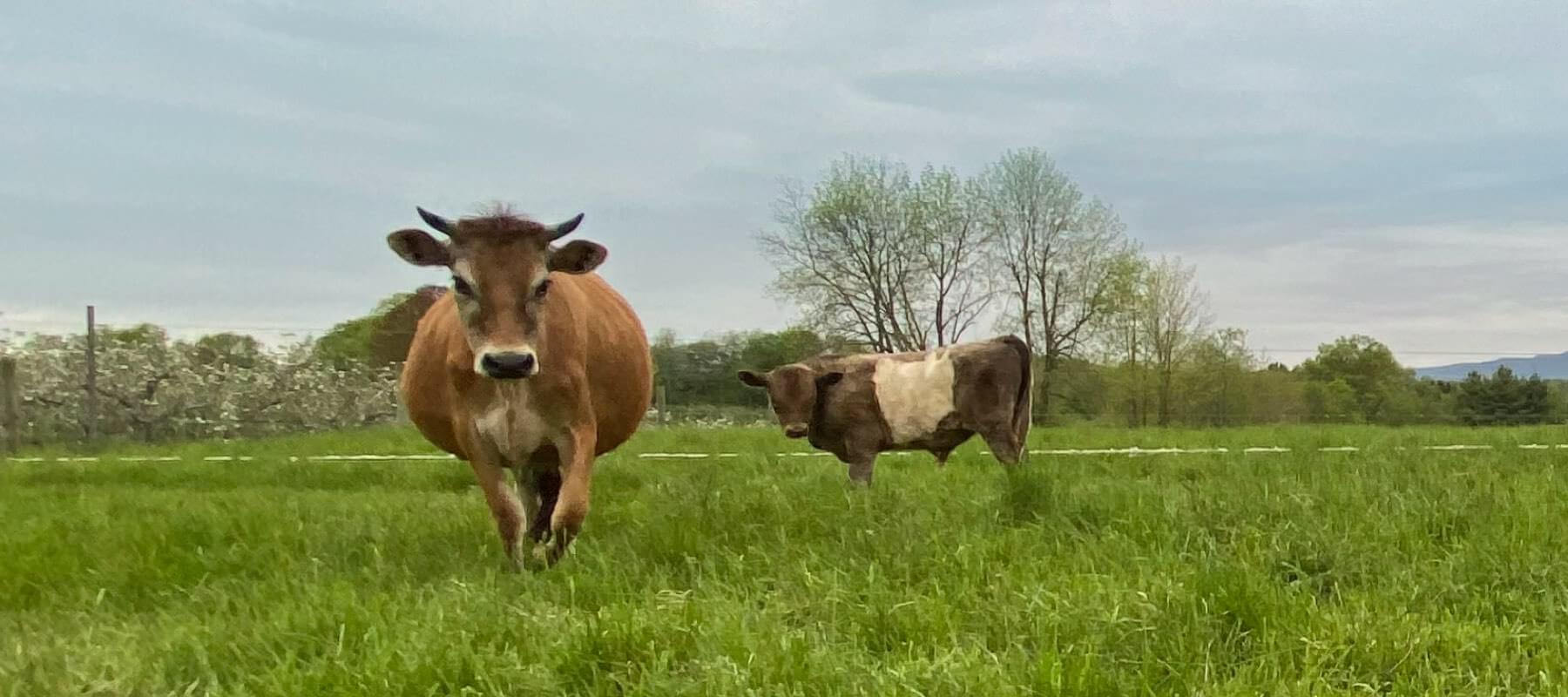
Grass-Fed vs. Grain-Fed Beef: What's the Difference?
Simply put, the adage "you are what you eat" is something commonly discussed about humans, but it applies to cattle too.
Most beef is raised on a diet of either grain or grass, which can have a big effect on the meat they produce. In recent years grass-fed beef has been gaining in popularity and you'd be right to assume it's better.
In this post, we'll explain grass-fed versus grain-fed beef.
Definitions: Grass-Fed Beef vs. Grain-Fed vs. Grass-Finished
To better understand the differences in the ways in which cattle are fed and labeled, let's consider several definitions.

What Is Grain-Fed Beef?
In the United States, grain-fed beef is normally what most will encounter in your local market. Considered an umbrella term for beef cattle that's fed a diet of corn, soy and other grains, "grain-fed" is also suggestive of the manner in which the cattle are raised. Generally, grain-fed cows are fed diets to increase their size rapidly including supplements and other additives.
What Is Grass-Fed Beef?
Grass-fed beef refers to meat that comes from cows primarily (though not exclusively) raised on grass and other forage like bushes and thistles, which is their natural diet. During the warmer months grass-fed cattle graze on pastures covered with forage, and in places where cold makes grazing difficult, they can get fed on supplemental grasses like hay.
You might be surprised to learn that some grass-fed beef may have also been fed grains. Because grain tends to produce larger animals more quickly, some farms will grass feed up to a few months before slaughter, and then finish raising them on a diet of grains. As a result, the meat produced can still be labeled as "grass-fed."
What Is Grass-Finished Beef?
Grass-finished beef is produced by cattle that have been fed grass from start to finish (minus any milk from its mother) for their entire lives. As you can imagine, grass-finished cattle require significantly more time for the cattle to grow naturally. A product labeled as "100% Grass-Fed Beef" is essentially grass-finished beef.
At Karl Family Farms, all of our beef is grass-finished; we label our beef jerkies and meat snacks as "100% Grass-Fed Beef".
Grass-Fed vs. Grain-Fed: Which Is Healthier?
There have been several studies that compare the healthfulness of each type of beef and while there has been some debate, the consensus is that grass-fed beef is healthier. Some specifics include:
Grass-Fed Beef Has Less Fat and Fewer Calories
Cattle raised on grass tends to produce leaner meat with fewer calories than those that have been fed grains.
Grass-fed beef has more:
- Omega-3 fatty acids, which are tied to health benefits like lowering risk for heart disease & stroke
- CLA (Conjugated Linoleic Acid), a type of Omega-6 trans-fat and antioxidant
Grain-fed beef has more:
- Monounsaturated fat, an antioxidant that reduces cholesterol and helps the body absorb nutrients
Grass-Fed Beef Is More Nutrient Dense
All meat contains high levels of Iron, Vitamin B, and Zinc but beef from grass-fed cattle have greater levels of vitamin A and E.
Does Grass-Fed Beef Taste Different than Grain-Fed Beef?
While taste is subjective, the diet cattle consume can have a significant effect on the flavor of the meat.
Cattle with a more natural, grass-fed diet produce meat that contains less fat and a milder, meatier flavor. Some have described this as more distinctive. In addition, it has a firm texture.
Grain-fed beef tends to be less flavorful, yet possess a buttery flavor. In addition, it tends to have a softer texture.
Differences in Animal Farming Practices
The way a cow is fed dictates much of how it gets raised. This is good news for grass-fed cows and bad news for the others.
Grain feeding is preferred by larger, more bottom-line conscious meat producers. Typically, these producers raise their livestock to maximize the size of their animals and the speed at which they grow. This means that the cattle are fed diets that include hormones and antibiotics while kept in smaller, confined areas.
Small, conscientious farmers usually opt to grass-feed their livestock. This allows the cattle to roam more freely and live longer lives in a more natural setting.
At Karl Family Farms, our herd is pasture-raised and 100% grass-fed. This not only matches our farm philosophy, but also produces delicious meat.
There's a Big Difference in Grass-Fed vs. Grain-Fed
Clearly differing diets suggest that the maxim "You are what you eat" rings true even for cattle. That's why Karl Family Farms creates our beef snacks with 100% grass-fed beef to produce delicious jerky that you can feel good about.